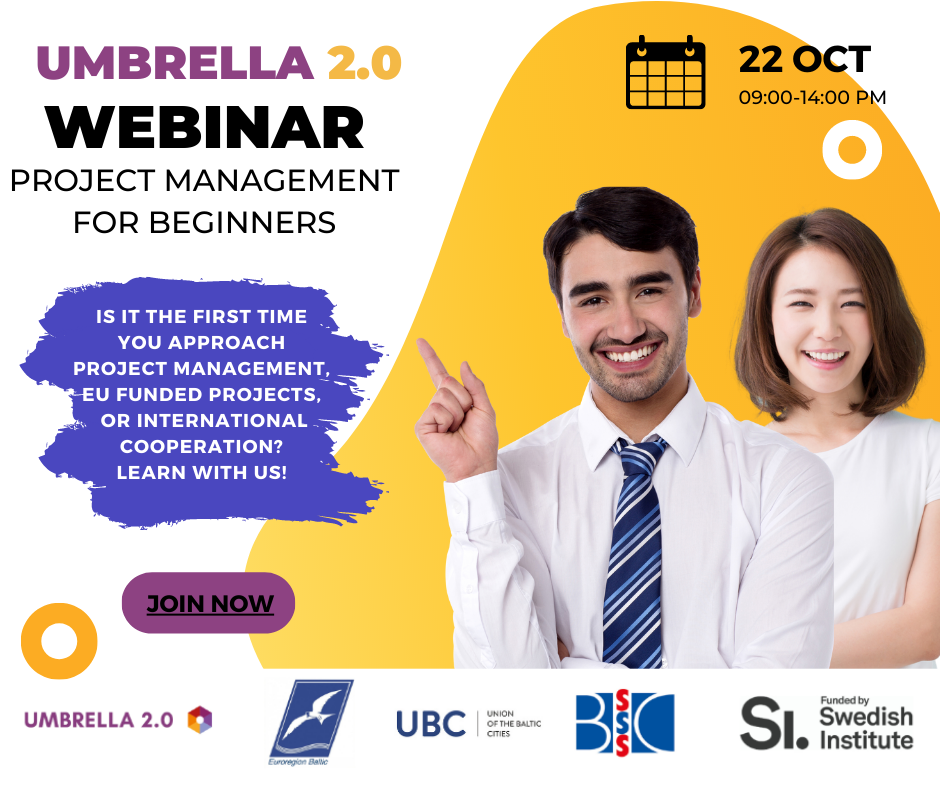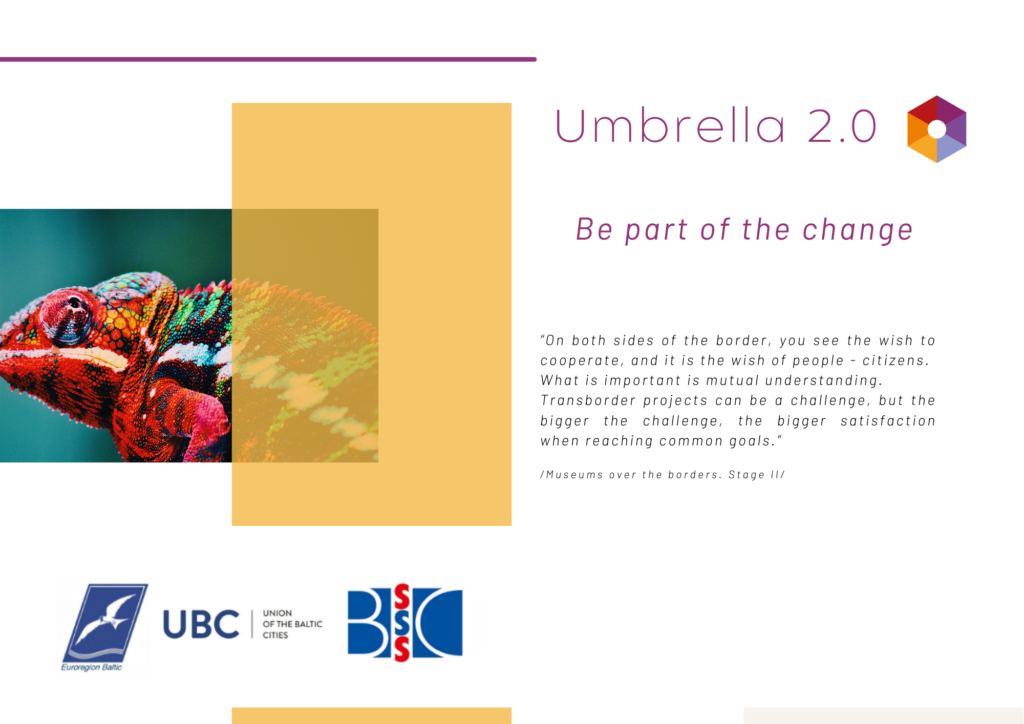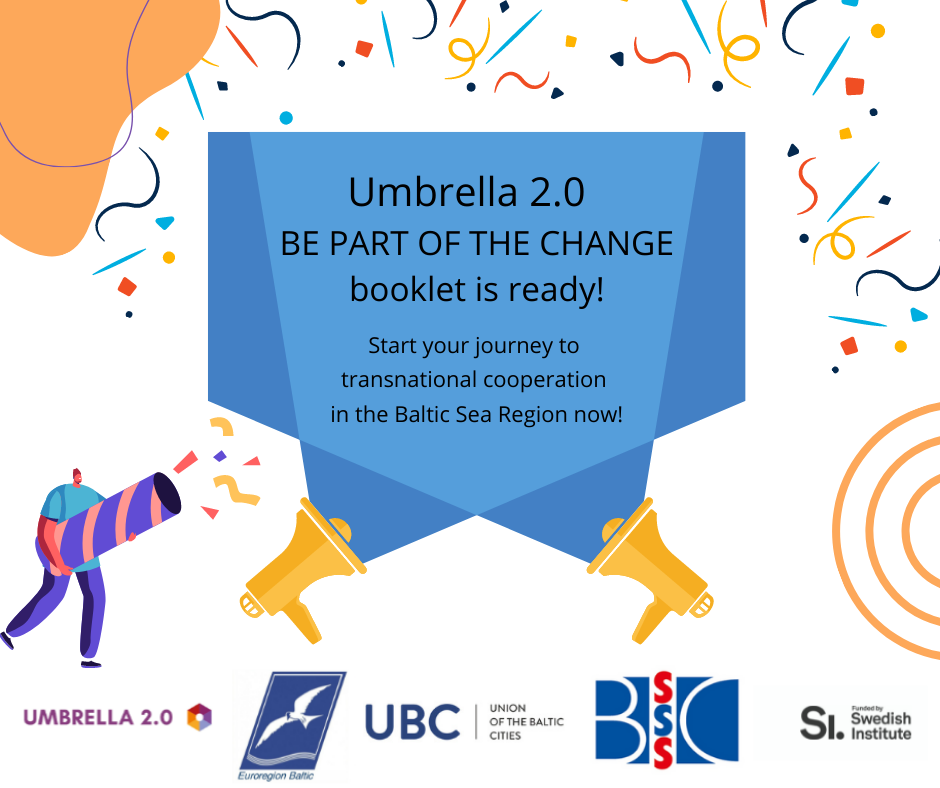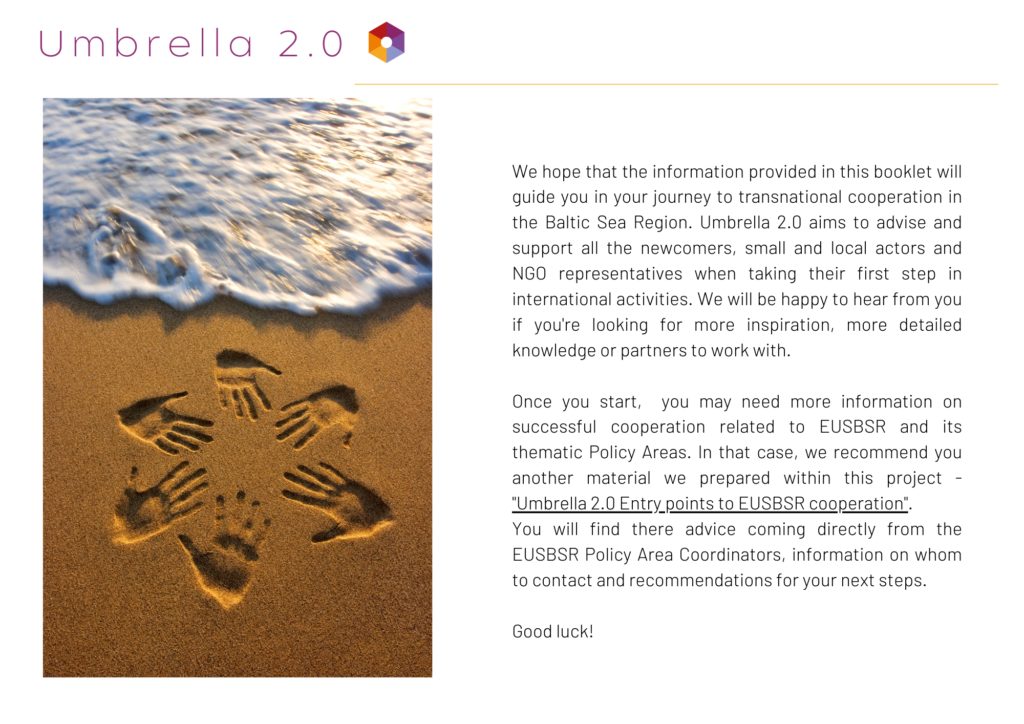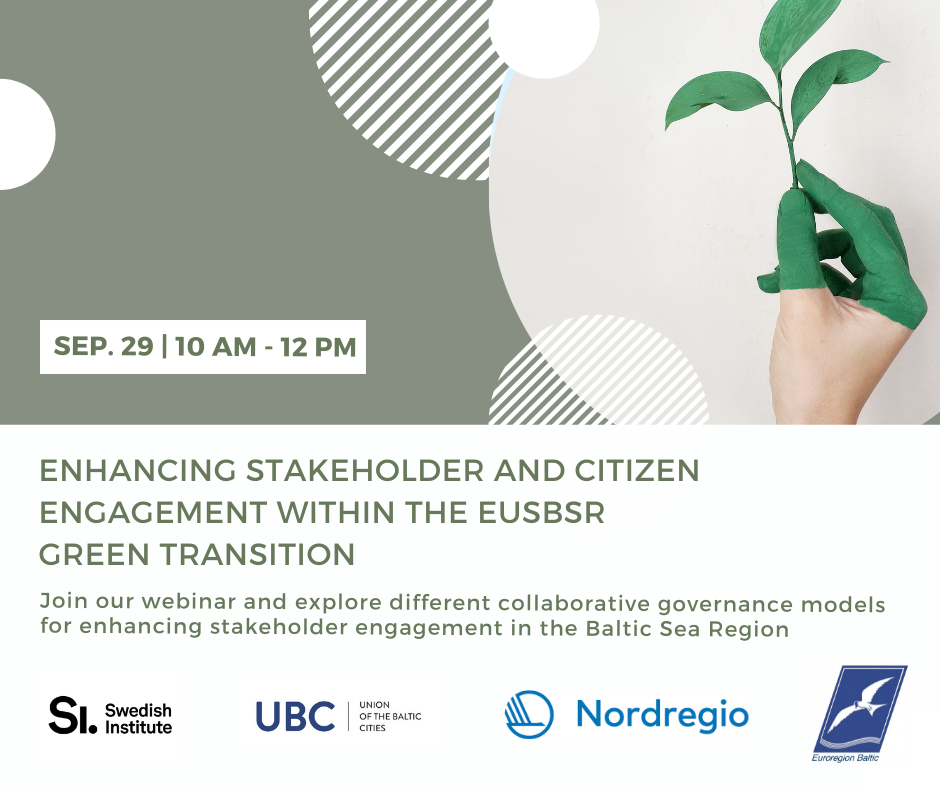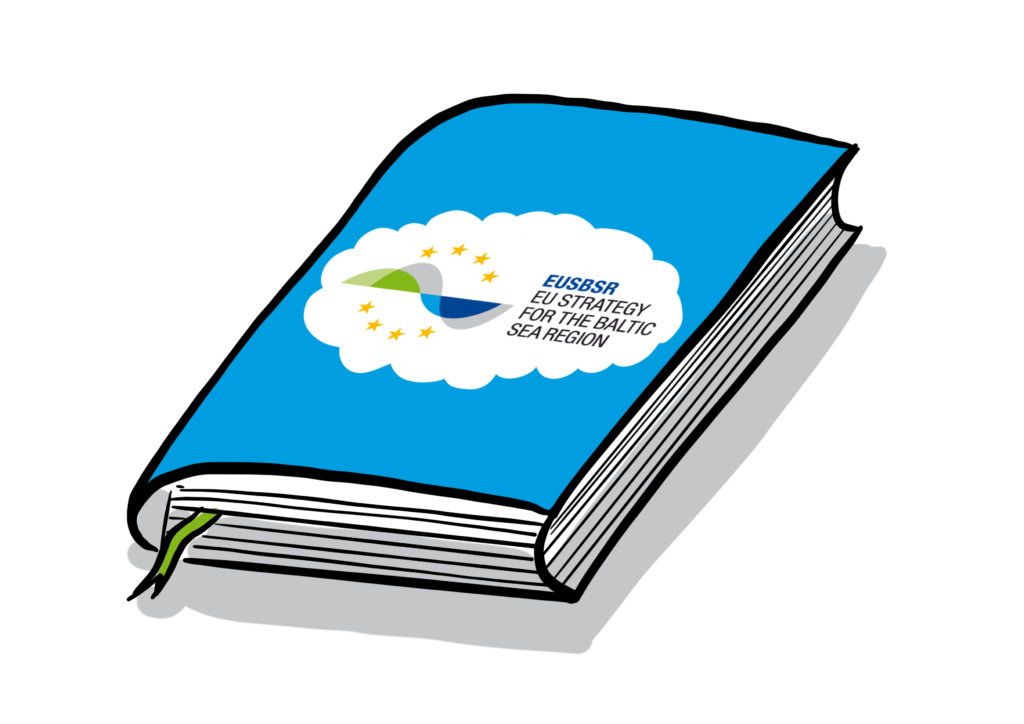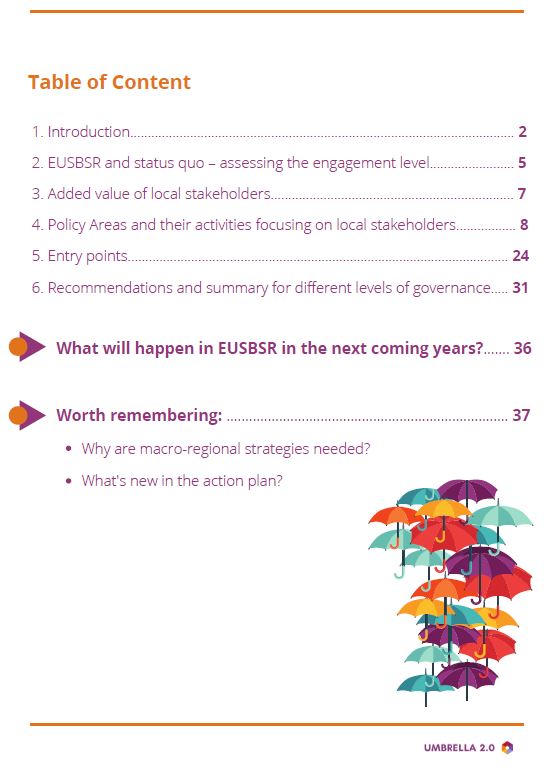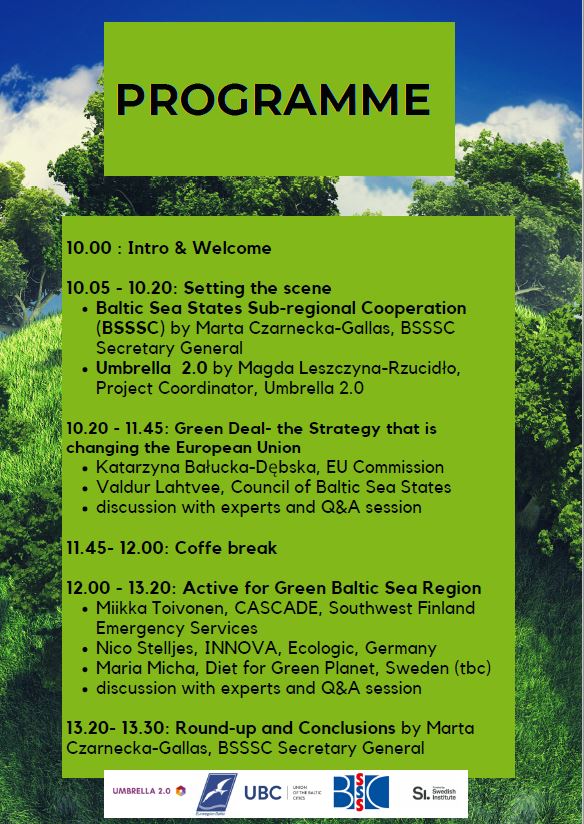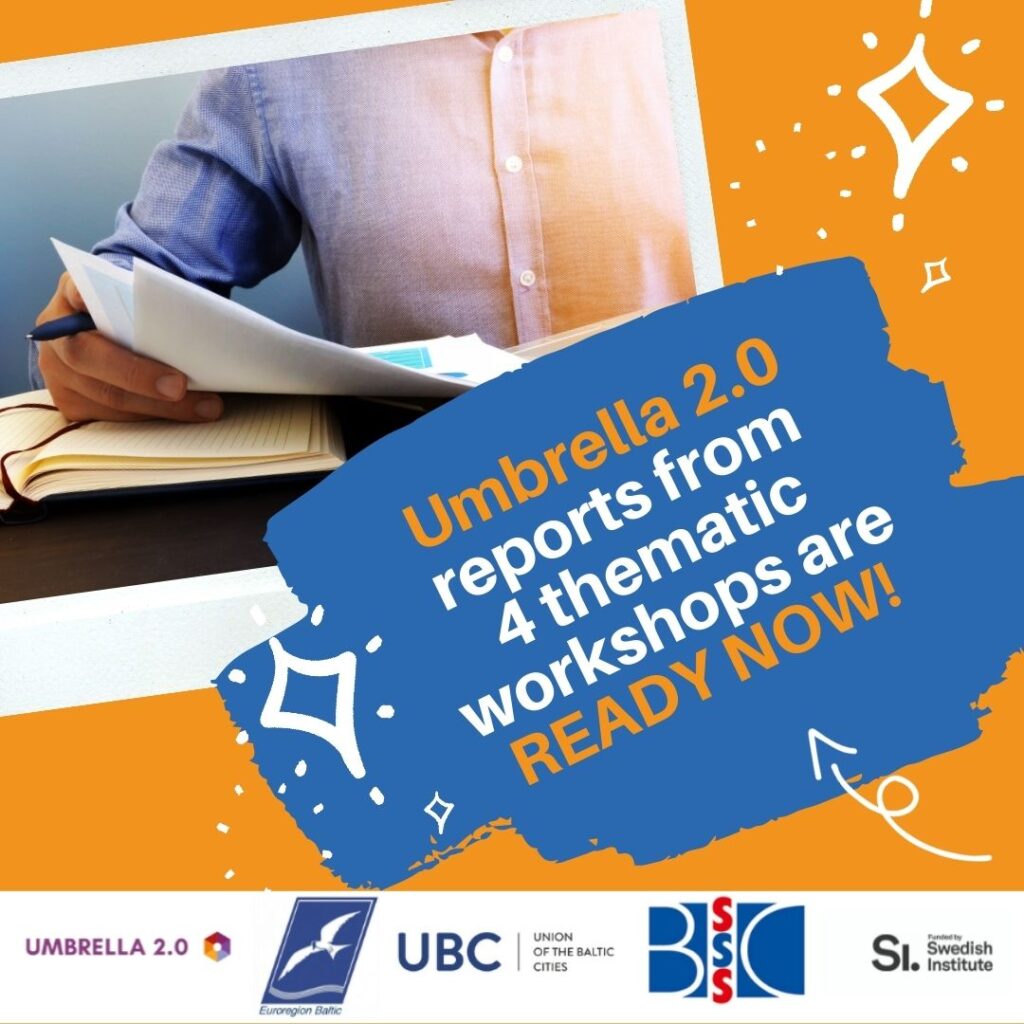Welcome to the training session about the EUSBSR on 9th November 2021 at 9.30-15.15 CET, Online. The event will be organised by the Umbrella 2.0 partner – Union of the Baltic Cities.
The overall aim is to shift the paradigm from taking part in international projects to becoming an active player in the EUSBSR process. The goal is to share the knowledge on how to build a process for the implementation of EUSBSR at the local level by local authorities and civil society organisations.
Please see the draft programme in the attachment here:
Please fill the application form here:
https://docs.google.com/forms/d/e/1FAIpQLScSbnqdTjYbaqo2Br5yofc_90pIeHBoqhIvq2xE17VgT6Txfw/viewform
What is Umbrella 2.0?
”UMBRELLA 2.0-Boosting transnational cooperation capacities for multilevel actors in the Baltic Sea Region” goal is to increase awareness and knowledge of transnational cooperation in the Baltic Sea Region. More specifically, the project aims at initiating a process for the development of strong multi-actor and multilevel governance partnerships that can undertake cross-sectoral sustainable solutions while following the principles and objectives of the EU Strategy for the Baltic Sea Region, EU Green Deal and UN SDG.
Project partners:
- Association of Polish Communes Euroregion Baltic (ERB) – the applicant
- Union of the Baltic Cities (UBC);
- Baltic Sea States Subregional Cooperation (BSSSC) – Associated partner
For any additional questions, please contact UBC Secretariat: info@ubc.net

